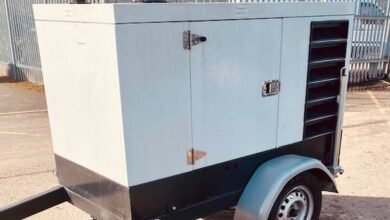Bad Credit Mortgage Canada Explained: Solutions and Tips for Approval

Getting a mortgage with bad credit in Canada can be difficult but not impossible. Traditional lenders usually require higher credit scores, leaving many with poor credit out of the running. However, alternative lenders such as B-lenders and private lenders offer mortgage options for those with lower credit scores, often starting around 500.
These mortgages tend to have higher interest rates due to increased risk, but they provide a viable path toward homeownership for individuals who have been declined by banks or credit unions. Understanding the different types of lenders and loan options is key for anyone navigating the process with less-than-perfect credit.
Understanding Bad Credit Mortgages in Canada
Bad credit mortgages Canada are designed for people whose credit scores or histories make it difficult to qualify for conventional home loans. These options come from lenders who work outside the traditional banking system and have more flexible requirements. Understanding credit score thresholds, available mortgage types, and borrower eligibility helps navigate this market responsibly.
See also: How to Use Aromatherapy with Massage for Relaxation: 5 Powerful Techniques for Stress Relief
What Qualifies as Bad Credit
In Canada, credit scores range from 300 to 900. A credit score below 680 typically classifies as “bad credit” regarding mortgage approval.
Scores between 500 and 679 often require alternative lending, while below 500 significantly limits options and leads to higher interest rates. Factors contributing to bad credit include missed payments, high debt levels, bankruptcy, or limited credit history.
Lenders may also look at non-credit elements like employment stability and debt-to-income ratio alongside credit scores to assess risk.
Types of Bad Credit Mortgages Available
Several mortgage options exist for borrowers with bad credit:
- B Lender Mortgages: Offered by lenders who work alongside traditional banks but have looser credit requirements and higher interest rates.
- Alt-A Mortgages: These loans target borrowers with fewer qualifying documents or slightly imperfect credit.
- Private Mortgages: Funded by private investors, these carry the highest cost but require minimal credit checks.
Each type balances flexibility with increased costs or stricter terms. Borrowers often face shorter amortization periods or larger down payments.
Eligibility Criteria for Borrowers
Eligibility depends on more than credit scores. Lenders typically require:
- A minimum credit score (often 500 or higher for alternative lenders)
- Proof of stable employment or income
- A reasonable debt-to-income ratio (usually under 45%)
- A down payment, often larger than traditional mortgages (e.g., 10-20%)
Some lenders might approve borrowers with recent financial challenges if they demonstrate improvement and consistent income.
Documentation and financial history are carefully reviewed to gauge repayment ability despite past credit issues.
Applying for a Bad Credit Mortgage in Canada
Applying for a mortgage with poor credit requires careful preparation and understanding of the lender’s expectations. Specific steps, essential documentation, and the choice of lender play critical roles in securing approval despite credit challenges.
Steps in the Application Process
The application process typically begins with a mortgage pre-approval. This helps borrowers understand the loan amount they qualify for and sets clear expectations. Next, borrowers submit a full mortgage application, where the lender reviews credit history, income, and debts.
During assessment, lenders might ask questions about negative credit events to gauge risk. Borrowers should be ready to explain past financial issues honestly. Once approved, they proceed to finalize the mortgage terms and close the loan.
Lenders offering bad credit mortgages often provide more flexible underwriting criteria but require stronger evidence of income and assets.
Documentation and Requirements
Documentation must be thorough and accurate. Common required documents include:
- Recent pay stubs or proof of income
- Employment verification
- Bank statements showing assets and savings
- Credit report details
- Identification (passport, driver’s license)
- Details of outstanding debts and liabilities
A minimum credit score around 500 is often necessary, though some lenders may have higher thresholds. Additionally, having a down payment of at least 5% to 10% improves chances. Proof of stable income and residence in a major city also strengthen an application.
Choosing the Right Lender
Borrowers should look for lenders experienced with bad credit mortgages, such as private lenders, Alt-A, or B lenders. These lenders tend to have more flexible requirements but often charge higher interest rates.
Comparing mortgage rate quotes, fees, and terms is essential. Working with mortgage brokers can help identify lenders willing to accommodate credit challenges. Transparent communication about one’s credit situation allows lenders to design suitable mortgage products.
Selecting a lender with clear terms and reasonable fees is crucial to avoid unexpected costs during the mortgage term.





